Food Temp Danger Zone Chart The Danger Zone 40 F 140 F Bacteria grow most rapidly in the range of temperatures between 40 and 140 F doubling in number in as little as 20 minutes This range of temperatures is often called the Danger Zone That s why the Meat and Poultry Hotline advises consumers to never leave food out of refrigeration over 2 hours
Contaminated milk and cheeses Salty foods e g ham Sliced meat Food made by hand that require no reheating e g puddings sandwiches Foodworkers who carry the bacteria and contaminate food Nausea vomiting stomach cramps and diarrhea usually occur within 30 minutes to 6 hours after eating contaminated food When they have nutrients food moisture and favorable temperatures they grow rapidly increasing in numbers to the point where some types of bacteria can cause illness Bacteria grow most rapidly in the range of temperatures between 40 and 140 F the Danger Zone some doubling in number in as little as 20 minutes
Food Temp Danger Zone Chart
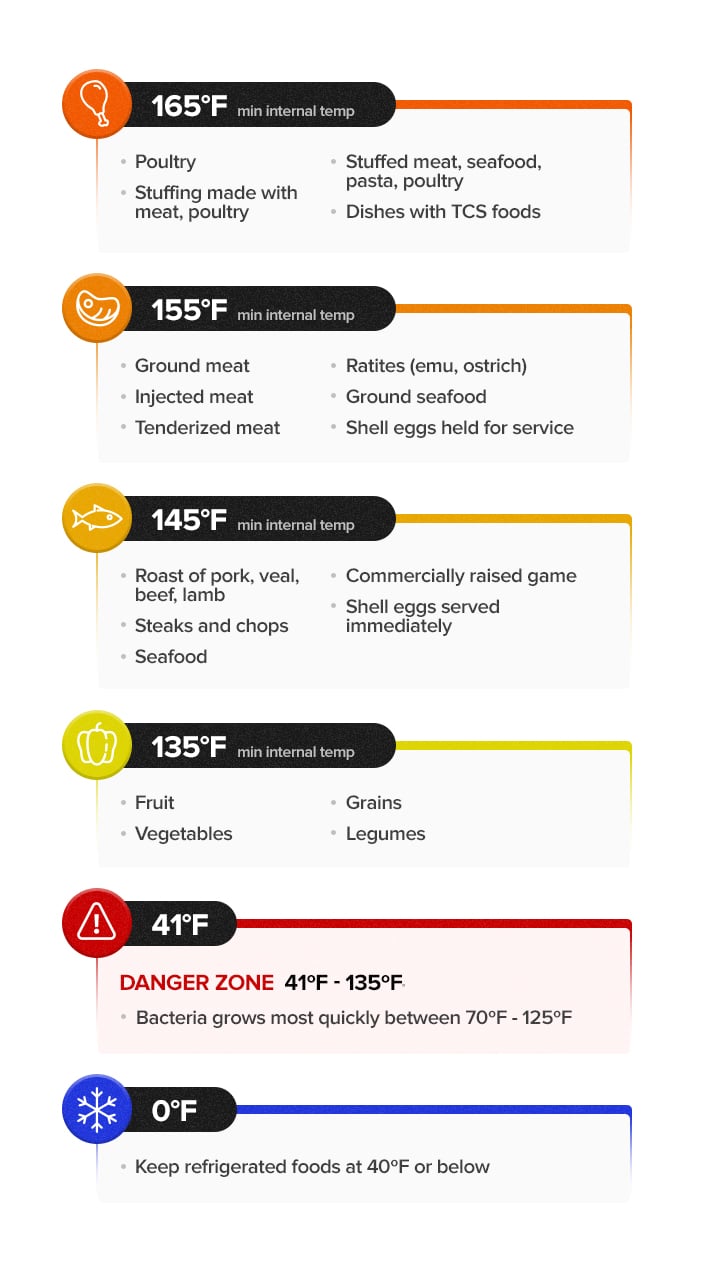
Food Temp Danger Zone Chart
https://cdnimg.webstaurantstore.com/uploads/blog/2020/9/tempgraphichighres.jpg

Danger Zone DriverLayer Search Engine
http://www.fsis.usda.gov/wps/wcm/connect/097b0701-8144-4f58-b5f5-28204e69067a/danger_zone_hi.jpg?MOD=AJPERES

Lunchbox Food Safety The Root Cause
http://therootcause.com.au/wp-content/uploads/Temperature-danger-zone-graphic-final_edited-2.jpg
Keep Food out of the Danger Zone Bacteria grow rapidly between the temperatures of 40 F and 140 F After food is safely cooked hot food must be kept hot at 140 F or warmer to prevent bacterial growth Within 2 hours of cooking food or after it is removed from an appliance keeping it warm leftovers must be refrigerated Completely thaw meat or poultry before smoking Because smoking uses low temperatures to cook food the meat will take too long to thaw in the smoker allowing it to linger in the Danger Zone temperatures between 40 and 140 F where harmful bacteria can multiply Defrosted meat also cooks more evenly Never thaw food at room temperature
Food will take longer to thaw in a refrigerator set at 35 F than one set at 40 F After thawing in the refrigerator items such as ground meat stew meat poultry seafood should remain safe and good quality for an additional day or two before cooking red meat cuts such as beef pork or lamb roasts chops and steaks 3 to 5 days Follow the two hour rule Foodborne illness causing bacteria grows rapidly when food is left out at temperatures between 40 degrees F and 140 degrees F Food that is between the temperatures of 40 degrees F and 140 degrees F is in the Danger Zone and only has a limited time 2 hours or 1 hour if above 90 degrees F before it becomes a food
More picture related to Food Temp Danger Zone Chart

8 Things You Should Know About Food Safety Delishably
https://usercontent1.hubstatic.com/8606772_f520.jpg

Food Temperature Danger Zone Chart SexiezPix Web Porn
https://i.pinimg.com/originals/a1/ac/0f/a1ac0fb7bf764a797816d25f7dda5f78.jpg
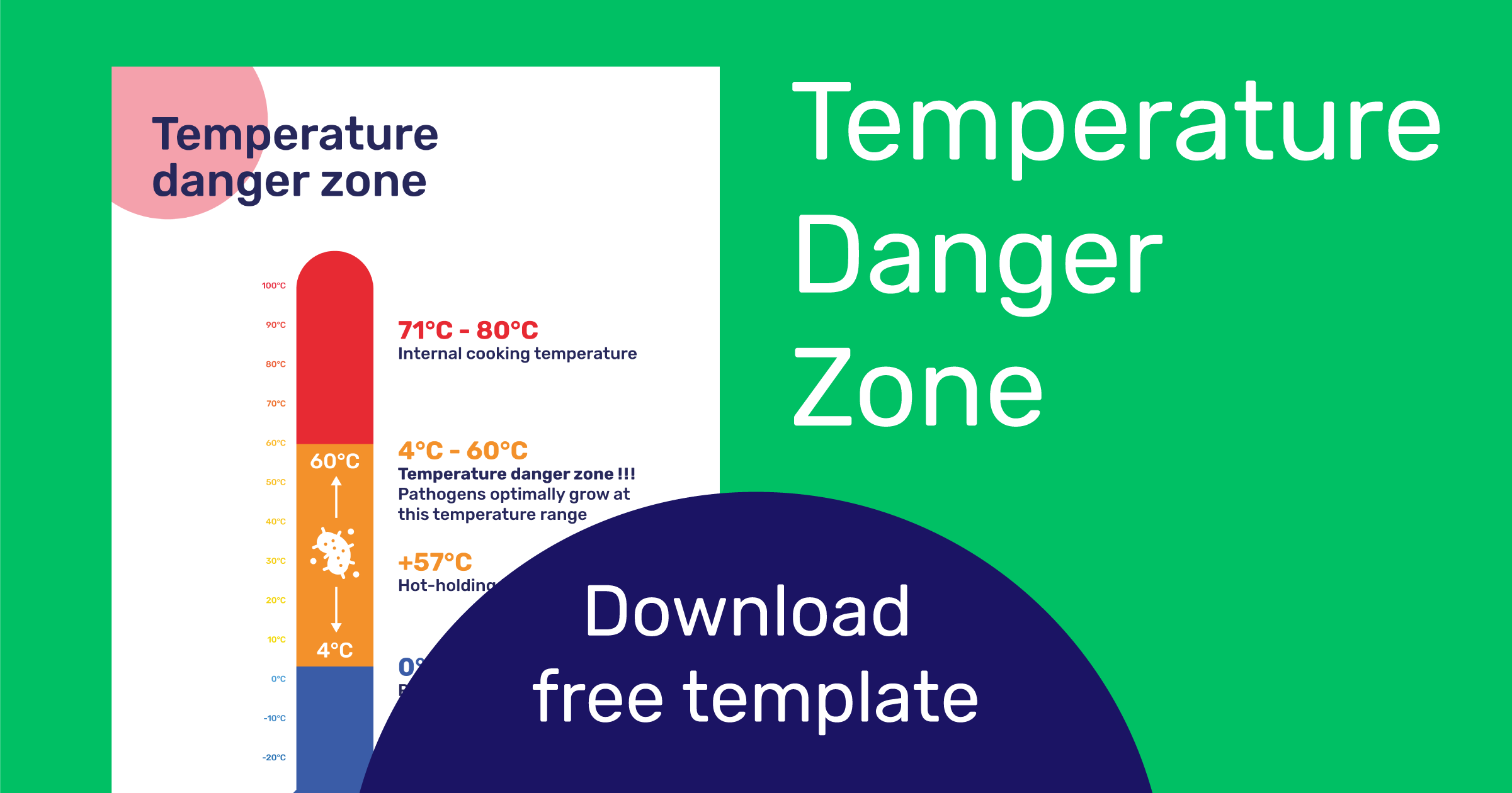
Food Danger Zone Chart
https://www.fooddocs.com/hubfs/Temp_danger_zone_1200x630.png
Food Safety Education Staff Press Inquiries 202 720 9113 Consumer Inquiries 888 674 6854 WASHINGTON May 26 2016 Summer cookouts are right around the corner and the U S Department of Agriculture s USDA Food Safety and Inspection Service FSIS is urging consumers to remember the four simple steps to food safety Clean Separate Cook and Chill Bacteria multiply rapidly between 40 degrees F and 140 degrees F To keep food out of this Danger Zone keep cold food cold and hot food hot Store food in the refrigerator 40 degrees F or below or freezer 0 degrees F or below
[desc-11]
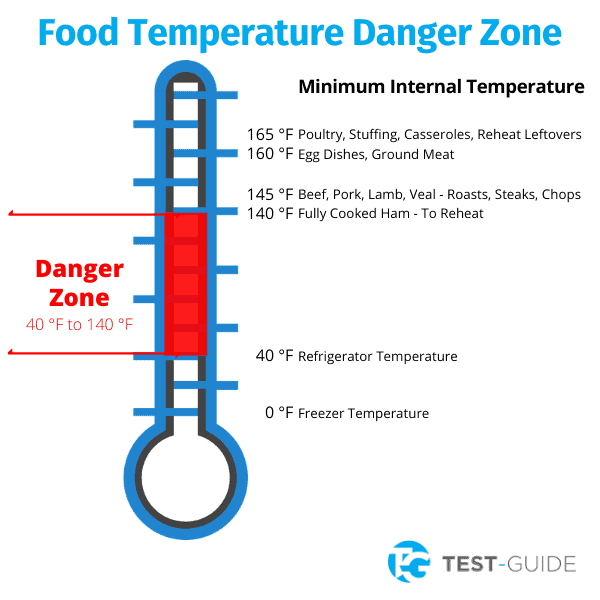
Food Temperature Danger Zone Test Guide
https://www.test-guide.com/wp-content/uploads/2023/04/Food_Temperature_Danger_Zone_1.png
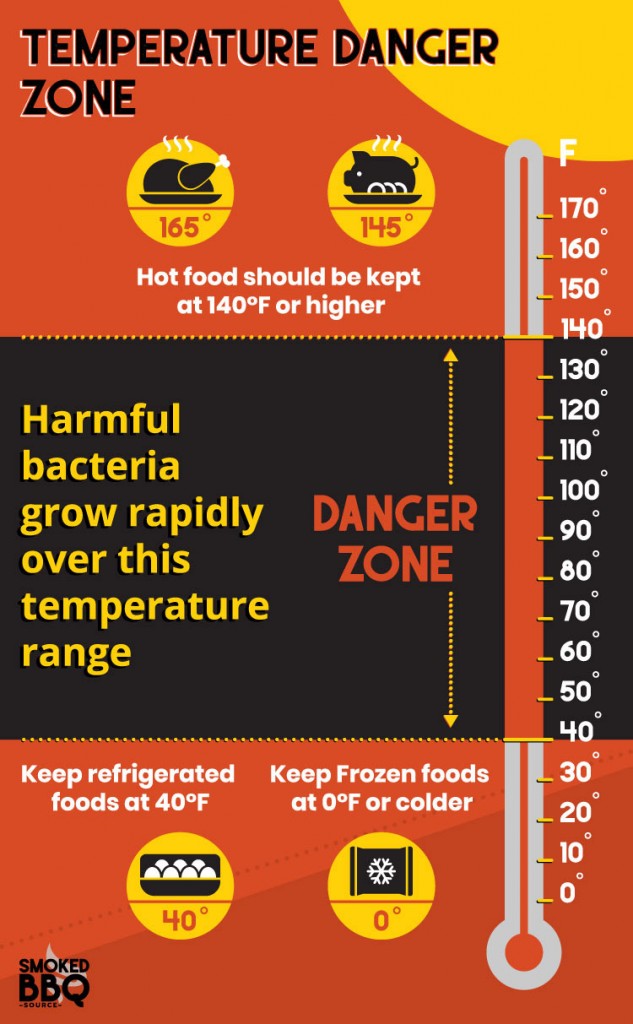
What Is The Temperature Danger Zone Food Safety 101 Smoked BBQ Source
https://www.smokedbbqsource.com/wp-content/uploads/2019/12/temperature-danger-zone-graphic1-633x1024.jpg
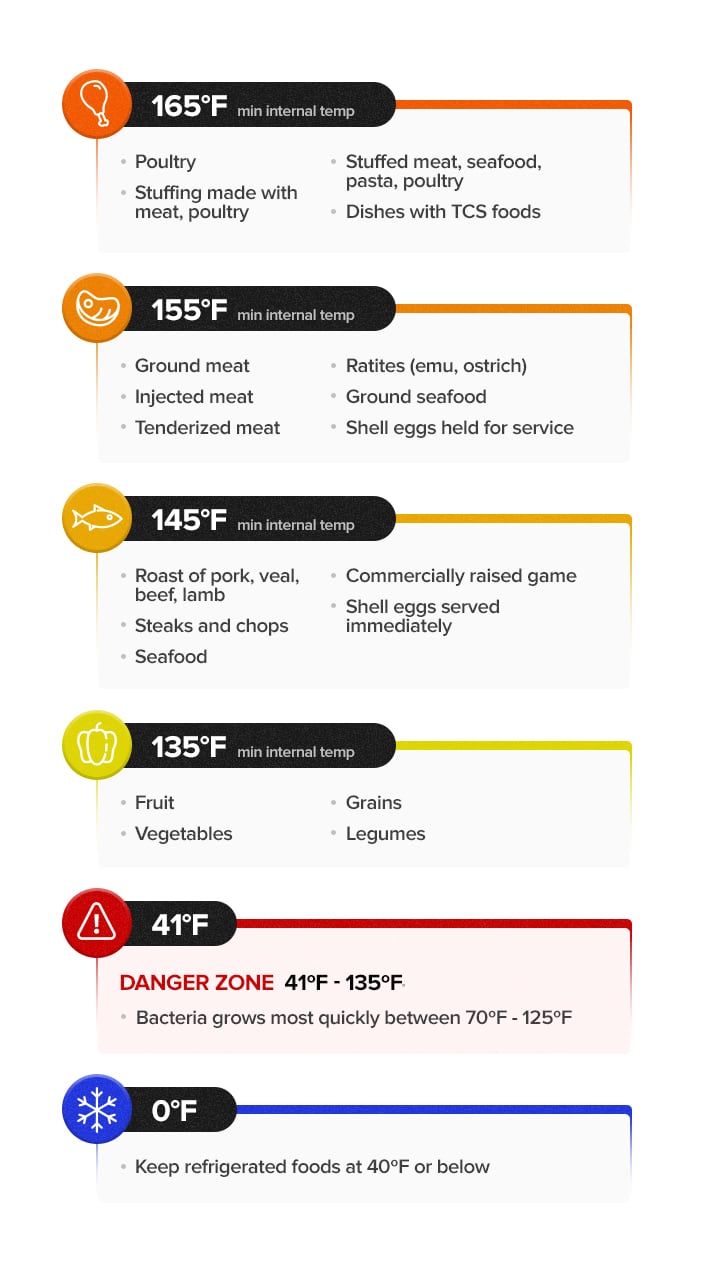
https://www.fsis.usda.gov › food-safety › safe-food-handling-and-prepar…
The Danger Zone 40 F 140 F Bacteria grow most rapidly in the range of temperatures between 40 and 140 F doubling in number in as little as 20 minutes This range of temperatures is often called the Danger Zone That s why the Meat and Poultry Hotline advises consumers to never leave food out of refrigeration over 2 hours

https://www.fsis.usda.gov › sites › default › files › media_file › Kitchen-C…
Contaminated milk and cheeses Salty foods e g ham Sliced meat Food made by hand that require no reheating e g puddings sandwiches Foodworkers who carry the bacteria and contaminate food Nausea vomiting stomach cramps and diarrhea usually occur within 30 minutes to 6 hours after eating contaminated food
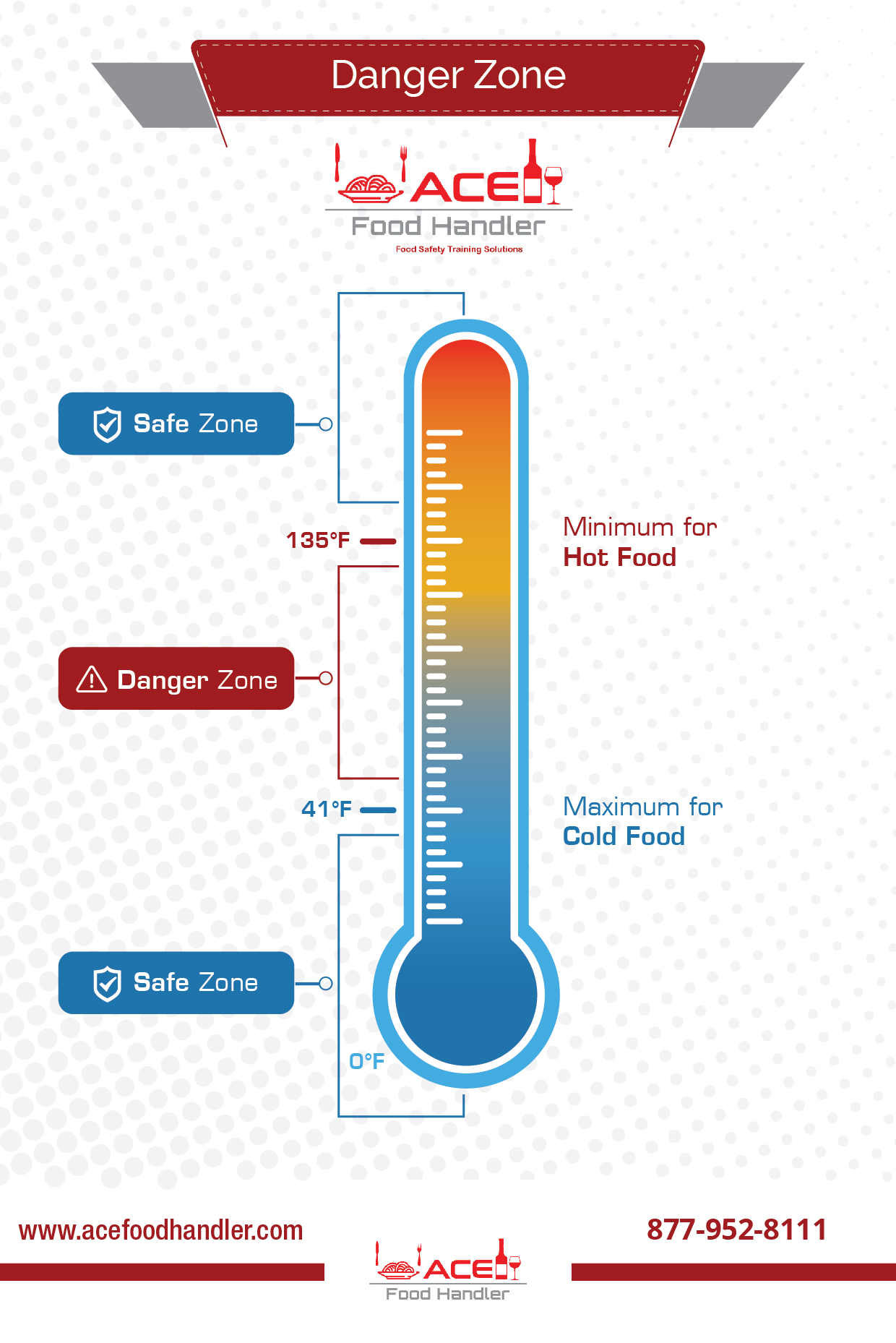
Food Danger Zone

Food Temperature Danger Zone Test Guide

Time Temperature Tables For Cooking Poultry Products Fsis Usda The Ideal Temperature Of Smoked

Food Safety Danger Zone Chart
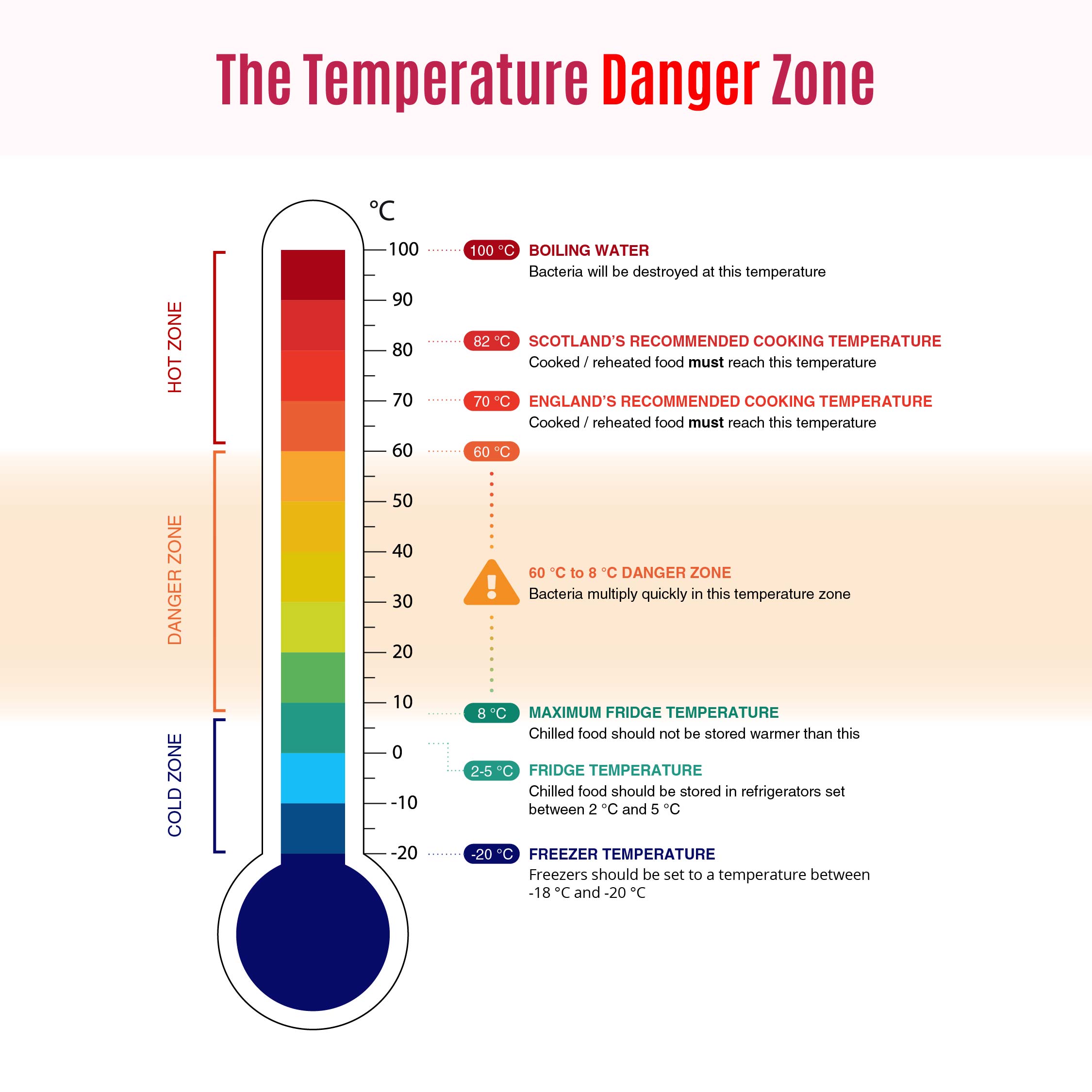
Food Danger Zone Chart
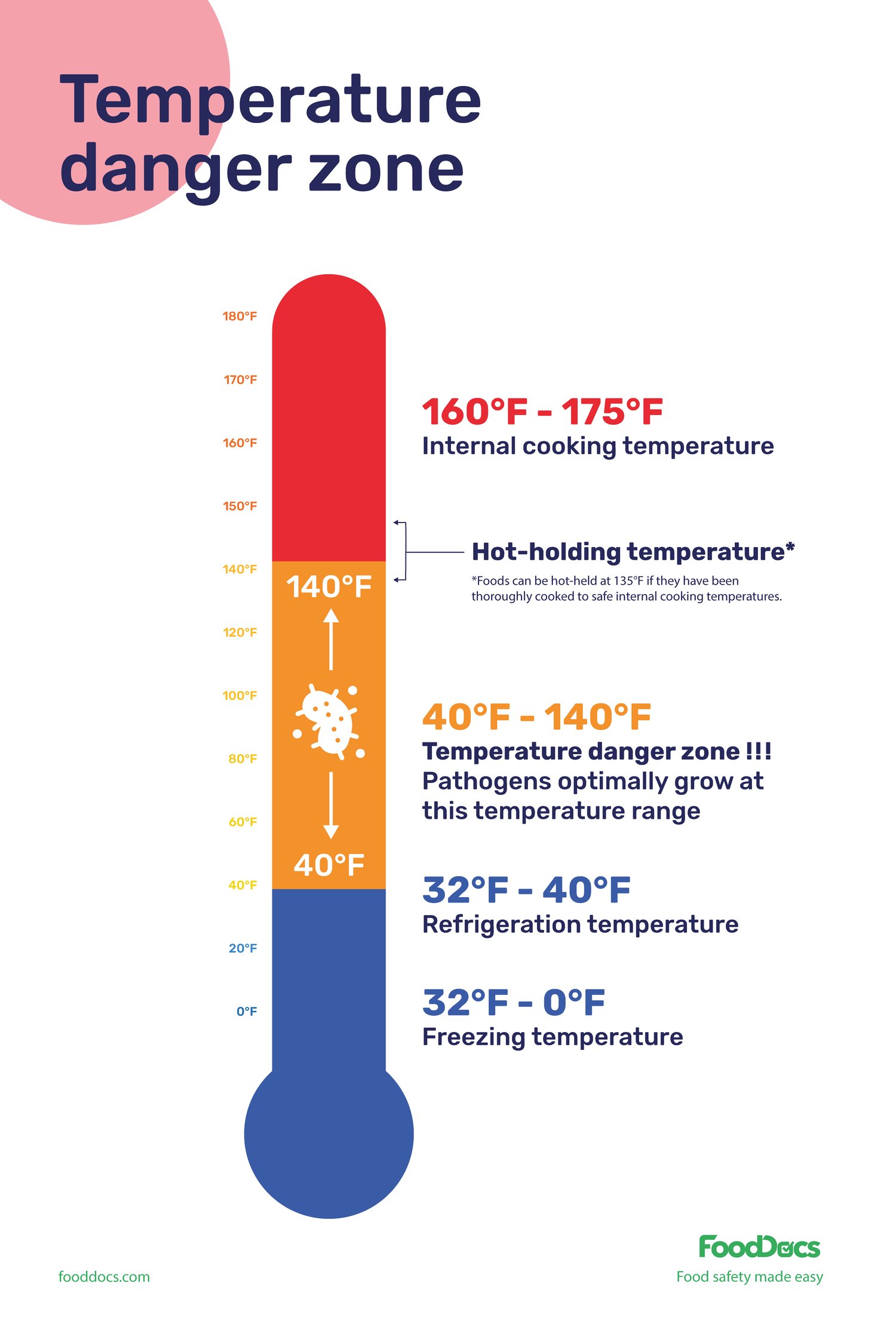
Temperature Danger Zone Download Free Poster

Temperature Danger Zone Download Free Poster

Food Handling

Understand The Temperature Danger Zone And Do Not Let Food Remain In That Zone Food Safety
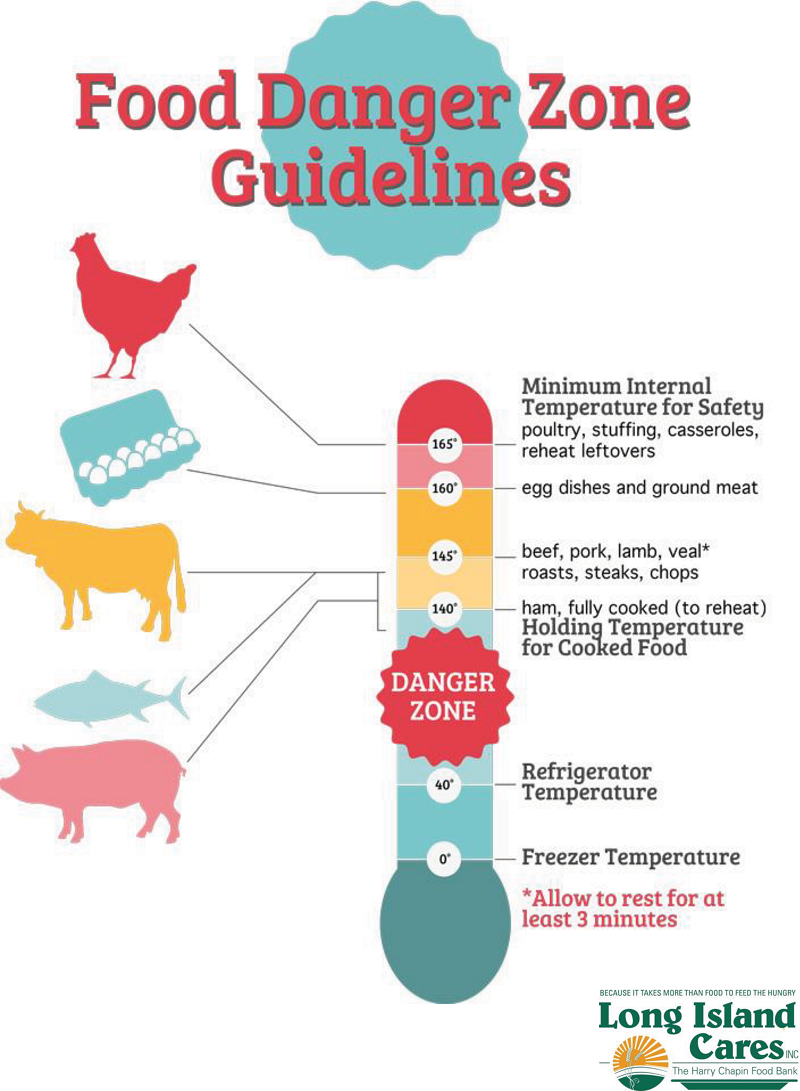
Food Safety Danger Zone Chart
Food Temp Danger Zone Chart - [desc-14]